Become a registered prosthodontist in New Zealand and Australia
What is Prosthodontics?
Prosthodontics is the dental speciality primarily concerned with the restoration and replacement of lost or damaged teeth. A prosthodontist uses dental materials to restore or replace teeth and missing tissues. Prosthodontists have an understanding of all the elements of a person's smile – not just the teeth, but also the gums, lips, and facial features. When it comes to planning and carrying out complex dental treatments, a team of dental specialists in different fields is often required. In many cases, that team is led by the prosthodontist.
DClinDent in Prosthodontics
| Duration | 3 years full-time |
|---|---|
| Campus | Dunedin |
| Aims |
|
| Objectives |
|
Skills you will develop / learn
- Planning of complex dental treatment needs from start to finish that can involve multiple dental specialists
- Learn the steps and stages involved in restoring worn down and broken dentition as well as where there are limited or no teeth, using crowns, bridges, dentures and partial dentures
- Working with dental specialists on replacing missing teeth with implant restorations
- Gain an in-depth knowledge of dental materials as well as diagnosing and managing temporomandibular disorders, maxillofacial defects and management of the effects of head and neck oncology
After course completion
On completion of the course, you can register as a prosthodontist and therefore carry out the scope of work which could include restoring worn down dentition, with an evidence-based understanding of how to carry out this treatment.
Student experiences
Dr Dhrupad Siddhanta
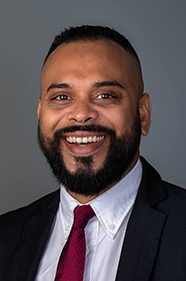 “My postgraduate journey was exciting, challenging, inspiring and life-changing all at the same time. The staff and fellow postgraduates were always keen to help you navigate the system and there was a sense of being “on a mission” throughout my postgraduate training”
“My postgraduate journey was exciting, challenging, inspiring and life-changing all at the same time. The staff and fellow postgraduates were always keen to help you navigate the system and there was a sense of being “on a mission” throughout my postgraduate training”
“There is a fundamental upgrade in mindset and confidence that comes with postgraduate training. I am constantly motivated to improve, educate and innovate. The overarching emphasis on evidence-based decision making during postgraduate training gets well and truly ingrained in you and ultimately makes you a more mature clinician.”
Read more about Dr Siddhanta's DClinDent experience
Dr Adeline Chai
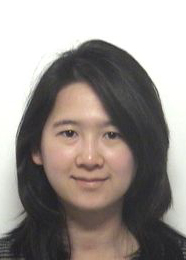 “My postgraduate training has allowed me to view patients with a different perspective and provide comprehensive care for my patients. I have also learnt to communicate and work closely with other specialists.”
“My postgraduate training has allowed me to view patients with a different perspective and provide comprehensive care for my patients. I have also learnt to communicate and work closely with other specialists.”
“The Otago Faculty of Dentistry has strong academic and research reputations. The teaching staff at the Department of Oral Rehabilitation consists of experienced and highly qualified clinicians and specialists. On top of that, I enjoy living and studying in Dunedin.”
Read more about Dr Chai's DClinDent experience
Abdelrahman Badarneh
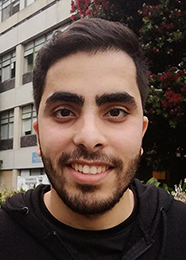 “Prosthodontics is a perfect match for my skills and personality. I always loved to restore broken things, solve problems, think laterally and be creative. In addition, compared to other specialties, Prosthodontics gives you the chance to develop that long-term relationship with your patients, follow up your work over long term, and learn new things every day.”
“Prosthodontics is a perfect match for my skills and personality. I always loved to restore broken things, solve problems, think laterally and be creative. In addition, compared to other specialties, Prosthodontics gives you the chance to develop that long-term relationship with your patients, follow up your work over long term, and learn new things every day.”
“The DClinDent programme has improved the way I approach patients, plan treatment, make clinical decisions, execute treatment, follow up and learn from my mistakes.”
Read more about Abdelrahman's DClinDent experience
Staff expertise
Professor Karl Lyons - Head of Discipline
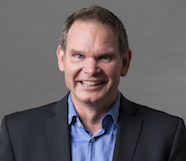 Professor Lyons has carried out research in dental implants and materials and in microbial adhesion to dental obturator prostheses, particularly adhesion of C. albicans and S. epidermidis. The latter was the topic of his PhD, which was awarded in 2012.
Professor Lyons has carried out research in dental implants and materials and in microbial adhesion to dental obturator prostheses, particularly adhesion of C. albicans and S. epidermidis. The latter was the topic of his PhD, which was awarded in 2012.
Professor Lyons has also been collaborating with DClinDent students with a research emphasis on clinical and in vitro research in the areas of implant prosthodontics and dental materials, particularly ceramics.
Professor Sunyoung Ma
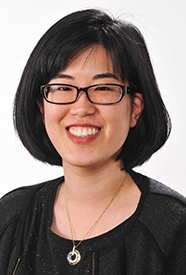 Professor Ma's research interest includes conducting clinical trials using different treatment modalities involving dental implants for patients especially in the older age group that need to replace their missing teeth. The main research outcome of interest includes biological success of the treatment as well as long-term clinical maintenance/ complication issues for both clinicians and patients including any treatment impact on oral health related quality of life for these patients. Professor Ma is also the primary investigator evaluating the clinical stability of zirconia abutments in association with low-temperature degradation and wear at the titanium-zirconia implant-abutment interfaces. Her current research projects include CAD-CAM technology used in fixed/removable prosthodontics and implant dentistry as well as virtual implant treatment planning.
Professor Ma's research interest includes conducting clinical trials using different treatment modalities involving dental implants for patients especially in the older age group that need to replace their missing teeth. The main research outcome of interest includes biological success of the treatment as well as long-term clinical maintenance/ complication issues for both clinicians and patients including any treatment impact on oral health related quality of life for these patients. Professor Ma is also the primary investigator evaluating the clinical stability of zirconia abutments in association with low-temperature degradation and wear at the titanium-zirconia implant-abutment interfaces. Her current research projects include CAD-CAM technology used in fixed/removable prosthodontics and implant dentistry as well as virtual implant treatment planning.
Associate Professor Vincent Bennani
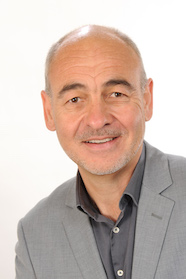 Associate Professor Bennani has two research themes linking his clinical interests and his biomaterials expertise. His research interests are focused on innovative techniques in dentistry, particularly soft tissue management in implantology. Little has been published about the challenges presented by the unique anatomy surrounding implants and how to preserve it during prosthodontics procedures. His research recognises the need for new strategies in prosthodontics procedures.
Associate Professor Bennani has two research themes linking his clinical interests and his biomaterials expertise. His research interests are focused on innovative techniques in dentistry, particularly soft tissue management in implantology. Little has been published about the challenges presented by the unique anatomy surrounding implants and how to preserve it during prosthodontics procedures. His research recognises the need for new strategies in prosthodontics procedures.
Dr Suzanne Hanlin
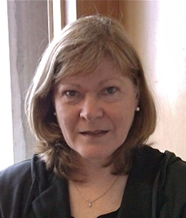 Dr Hanlin has three main fields of research that support and inform dental clinical practice and teaching in New Zealand: Clinical Practice Based Research Network ( PBRN ), dental education, and health informatics in dentistry.
Dr Hanlin has three main fields of research that support and inform dental clinical practice and teaching in New Zealand: Clinical Practice Based Research Network ( PBRN ), dental education, and health informatics in dentistry.
Dr Hanlin chairs the board of the (Applied Research through Clinicians' Hands) dental PBRN . She is a consultant registered specialist prosthodontist with clinical expertise in fixed and removable prosthodontics and implantology.
Dr Kate Newsham-West
Dr Newsham-West is a Professional Practice Fellow in the Department of Oral Rehabilitation, with a research interest in dental education.
Dr Arthi Senthilkumar
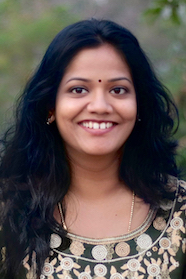
Dr Arthi Senthilkumar serves as a distinguished faculty member within our department, bringing a wealth of expertise in dental public health, prosthodontics, and dental education. With a strong background in these areas, Dr Senthilkumar has significantly contributed to our department's research initiatives and educational endeavours.
Her doctoral research focused on elucidating predictors of dental caries among Indian adolescents, highlighting the importance of parental education and employment status. This research work underscores her commitment to advancing dental epidemiology and oral health literacy.
In addition to her public health research, Dr Senthilkumar is actively engaged in prosthodontics research, with a focus on areas such as implants, digital dentures, and optimisation of digital workflows for fixed prosthodontics.
Complementing her research expertise, Dr Senthilkumar is deeply committed to dental education. She has spearheaded efforts to sustain clinical teaching staff and integrate oral health education into non-dental health programs, research on improving student/patient experiences in learning environment while fostering interdisciplinary collaboration.
With her adept methodological and statistical skills, Dr Senthilkumar serves as an invaluable mentor to undergraduate and postgraduate students, guiding them through diverse research methodologies (qualitative, quantitative, laboratory and clinical studies) and promoting a culture of academic excellence within our department.
Dr David Roessler
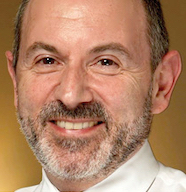
David Roessler has spent most of his career as a Prosthodontist in private practice in Sydney’s CBD. Four years ago he moved to New Zealand to be the Clinical Director of the all new Auckland Dental Facility built by the University of Otago, Faculty of Dentistry.
David has been a Keynote Speaker at many international conferences and has given more than 1000 lectures, workshops and hands on courses in almost every facet of restorative, fixed and removable prosthodontics, aesthetic and implant dentistry in Australia, Asia, Europe and the USA.
He has authored numerous publications and is an invited lecturer and examiner to both undergraduate and graduate students at a number of Universities as well as being an Examiner for the Royal Australasian College of Dental Surgeons.
Course content: Year 1
CLDN 910 Research Evaluation and Design
- Molecular biology – implications in dental research and care
- Anatomy of the head and neck
- Human development with emphasis on orofacial tissues
- Genetic understanding of orofacial development and disease
- Orofacial diseases
- Orofacial disease management
- Dental care and research – responsibilities under the Treaty of Waitangi
- Research development
- Health research
- Oral microbiology research
- Dental materials research
- Clinical dental research
- Critical evaluation of scientific literature
- Biostatistics and statistics
- Scientific writing
CLDN 920 Clinical Practice – Research Evidence
- Scientific understanding of the health and disease of orofacial tissues
- Research evidence of management of particular orofacial problems
- Clinical management
- Patient management
- Laboratory experience will be related to acquisition of clinical skills
Course content: Years 2 and 3
CLDN 9F Thesis Research, Clinical Research, Clinical Practice
- Supervised research investigation and preparation of a thesis
- Clinical research and practice involving prescribed patients referred for specialist care
Assessment
You are required to pass both papers in the first year of the programme with at least a B+ grade in each paper to be able to continue to the second and third years of thesis research, clinical research, and clinical practice.
By the end of the first year, the Head of Department and the DClinDent Co-ordinator will assess your capacity to complete the course. Where advisable, you may be recommended to be awarded a Diploma.
Internal assessment
A grade for the year's internal assessment will be derived from reports made by clinical teachers and other internally-assessed course components during the year.
Examinations
Examinations will be held at the end of each year. A paper is a graded component of the total examination process and may be comprised of some or all of the following: internal assessment, written examination, oral examination, clinical oral examination, assessment of the logbook, presentation and oral examination of the research report.
Course instruments
You are encouraged to provide a laptop computer and a digital SLR camera, lens, and flash of a design approved by the Department. Other dental equipment and materials used in clinical and laboratory work are provided.
The Department will ensure that funds are available for the research project, and may provide some assistance with photocopying.